Core Strengthening Exercises for Middle-Aged Adults

Core Strengthening Exercises for Middle-Aged Adults
As we age, maintaining a strong core becomes increasingly important for overall health, balance, and preventing injuries. For middle-aged adults, particularly those between 40 and 55, core strengthening exercises can be a game-changer in enhancing functional fitness and quality of life. In this article, we will explore the importance of core strength, discuss practical exercises tailored to this age group, and provide tips on how to incorporate these exercises into your daily routine.
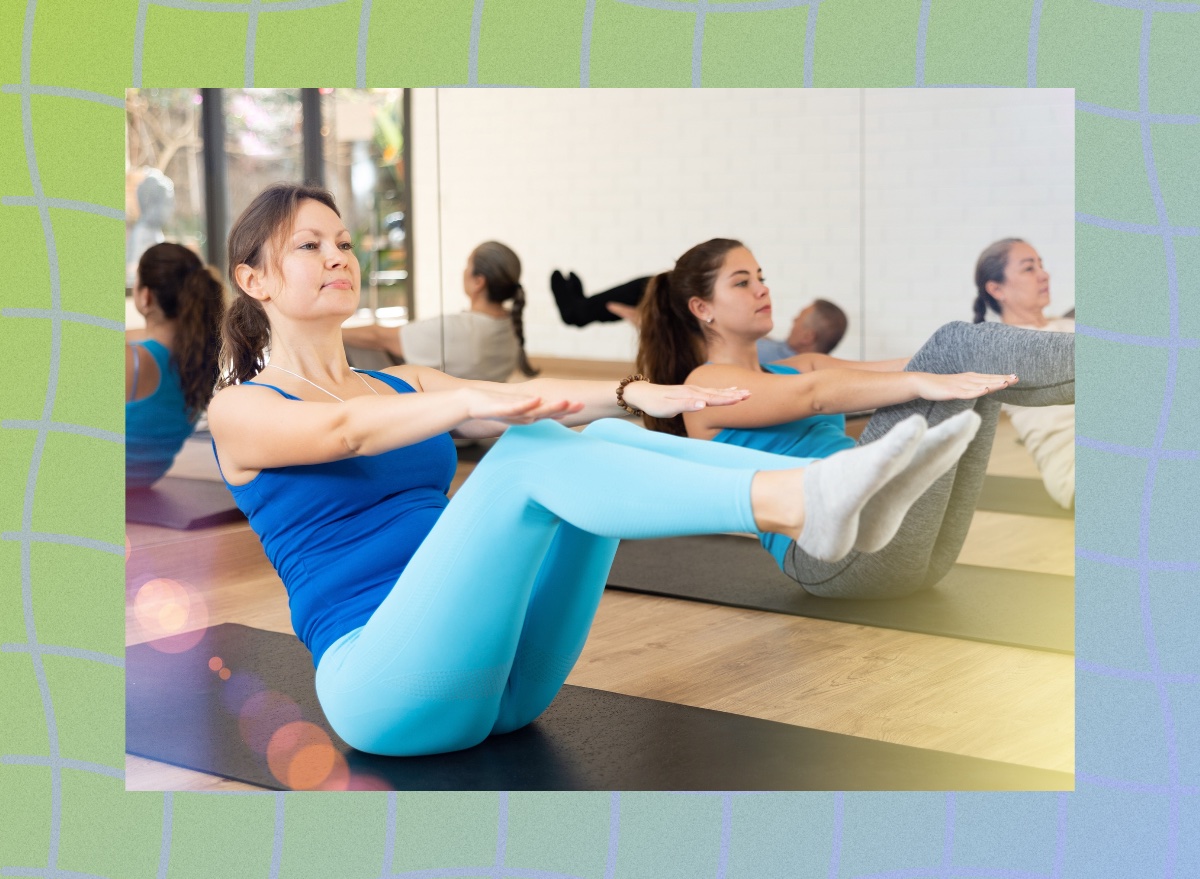
Why Core Strength Matters
Core strength is not just about having a six-pack; it’s about building a foundation of stability and balance that supports your entire body. The core includes muscles in your abdomen, back, and pelvis, which work together to improve posture, reduce back pain, and enhance overall physical performance. As we age, maintaining core strength is crucial for:
-
Preventing Injuries: A strong core helps stabilize your body, reducing the risk of falls and injuries.
-
Improving Posture: Core muscles support the spine, promoting good posture and reducing strain on the back.
-
Enhancing Balance: Core strength improves coordination and balance, making daily activities easier and safer.
-
Supporting Active Lifestyle: Whether it’s playing with grandchildren, hiking, or simply carrying groceries, a strong core makes life more enjoyable and manageable.
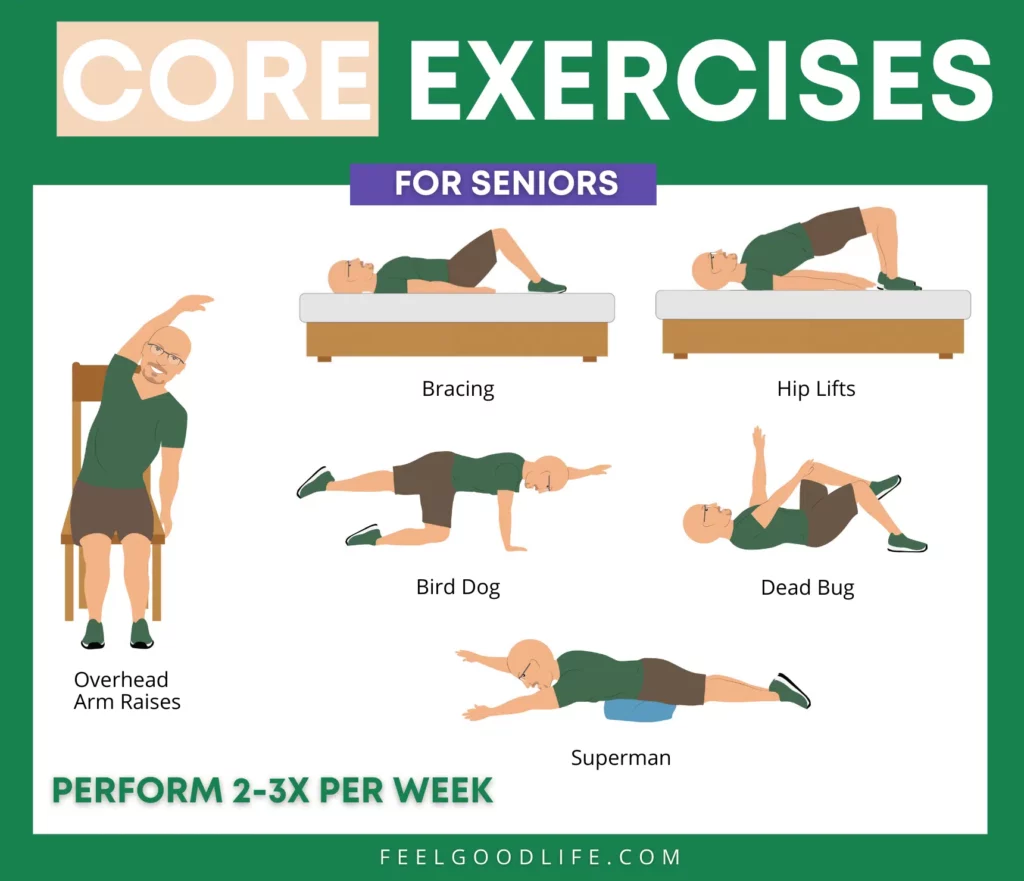
Practical Core Exercises for Middle-Aged Adults
Here are some effective and accessible core exercises that you can easily integrate into your fitness routine:

1. Planks
-
How to Do It: Start in a push-up position, then lower your forearms to the ground. Keep your body straight, engage your core, and hold for 30-60 seconds. Repeat 3-5 times.
-
Benefits: Engages multiple muscle groups, including abs, back, and shoulders.

2. Bridges
-
How to Do It: Lie on your back with your knees bent and feet flat on the ground. Lift your hips off the ground, squeezing your glutes and engaging your core. Hold for 5-10 seconds, then lower back down. Repeat 10-15 times.
-
Benefits: Strengthens lower back, glutes, and core.

3. Dead Bug
-
How to Do It: Lie on your back with your arms extended towards the ceiling and legs in a tabletop position. Lower your right arm and left leg towards the floor, keeping your lower back pressed against the ground. Return to the starting position and repeat on the opposite side. Perform 3 sets of 10-15 reps.
-
Benefits: Engages multiple core muscles without straining the back.
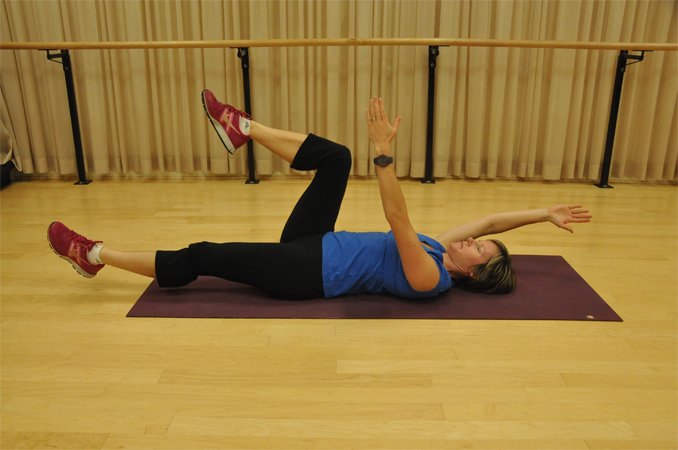
4. Bird Dog
-
How to Do It: Start on your hands and knees. Extend your right arm forward and left leg back, keeping your back straight and core engaged. Hold for 5-10 seconds, then switch sides. Repeat 10-15 times on each side.
-
Benefits: Improves balance and strengthens core and back muscles.
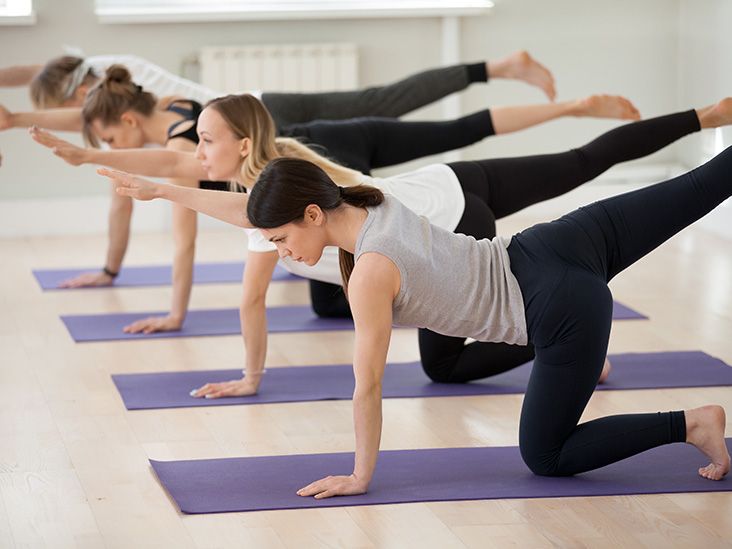
5. Pallof Press
-
How to Do It: Use a resistance band or cable machine. Hold the handle with both hands at your chest, then press it away from your body while keeping your core engaged. Slowly return to the starting position. Perform 3 sets of 10-15 reps on each side.
-
Benefits: Enhances core stability and rotational strength.
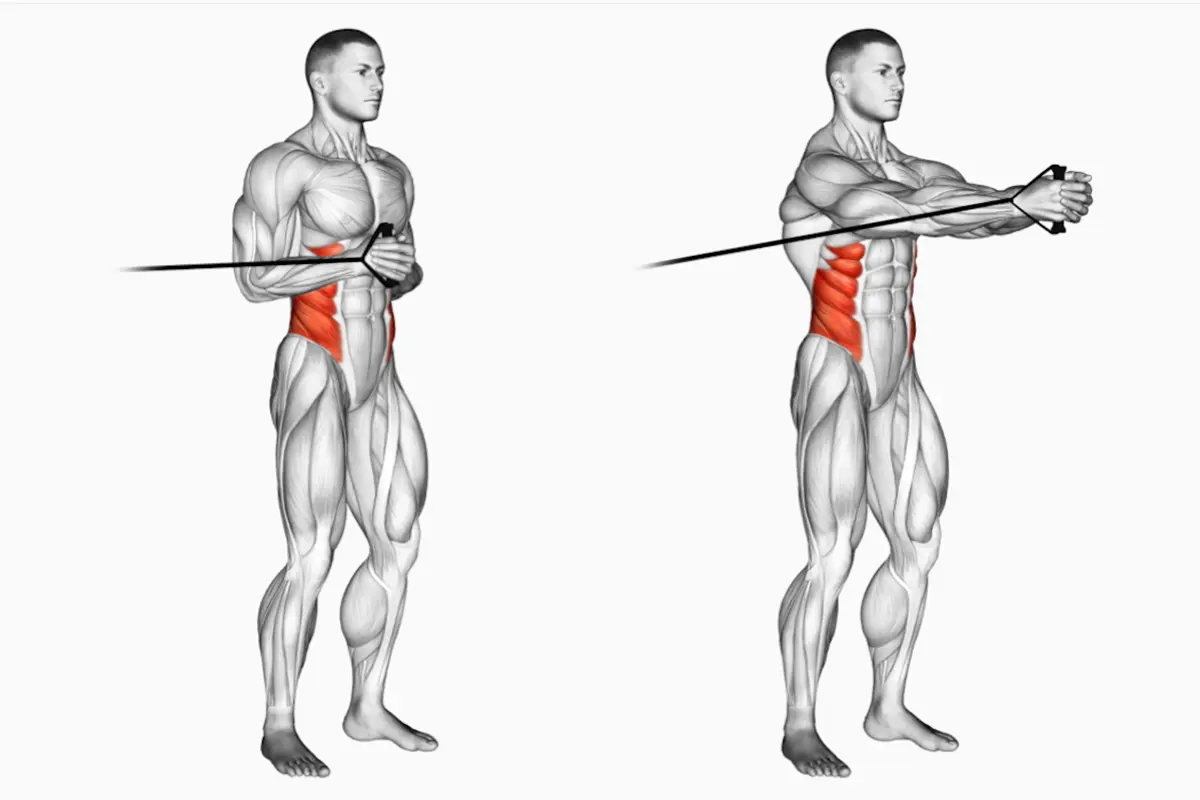
Tips for Incorporating Core Exercises into Your Lifestyle
-
Start Slowly: Begin with gentle exercises and gradually increase intensity and frequency.
-
Listen to Your Body: If you experience pain or discomfort, stop immediately and consult a healthcare professional.
-
Make It Fun: Combine core exercises with activities you enjoy, like hiking or dancing.
-
Schedule It: Fit exercises into your daily routine, such as during commercial breaks or right after waking up.
-
Stay Consistent: Aim to perform core exercises 3-4 times a week for noticeable improvements.

Overcoming Common Challenges
-
Finding Time: Use pockets of time throughout the day, like during breaks at work or while waiting in line.
-
Staying Motivated: Remind yourself of the benefits, such as improved balance and reduced back pain.
-
Avoiding Injury: Focus on proper form and listen to your body to avoid overexertion.

Conclusion
Core strengthening exercises are a powerful tool for middle-aged adults looking to enhance their health, stability, and overall quality of life. By incorporating these exercises into your routine and staying consistent, you can enjoy a more active, balanced, and fulfilling life. Remember, every small step counts, and investing in your core strength is one of the best investments you can make for your future well-being.

Additional Resources
For those interested in exploring more exercises or learning about specific health conditions, here are some additional resources:
-
Fibromyalgia and Core Strengthening: Research suggests that core strengthening can improve balance and reduce symptoms in fibromyalgia patients .9.
-
Low Back Pain: Combining core exercises with techniques like strain counterstrain can significantly improve pain and functional status .1.
-
Core Exercises for Seniors: While this article focuses on middle-aged adults, similar exercises can be beneficial for seniors, with modifications to suit individual needs .11.

Frequently Asked Questions
Q: What if I have back pain? Should I still do core exercises?
A: Yes, but start with gentle exercises and consult a healthcare professional if you experience any discomfort.
Q: How often should I do core exercises?
A: Aim for 3-4 times a week to see noticeable improvements.
Q: Can I do core exercises at home?
A: Absolutely! Most exercises can be done at home without any special equipment.
Final Thoughts
Core strengthening is not just about physical health; it’s about empowering yourself to live life to the fullest. Whether you’re looking to improve your balance, reduce back pain, or simply feel more confident in your daily activities, incorporating core exercises into your routine can make a significant difference. So, take the first step today and start building a stronger, healthier you.









